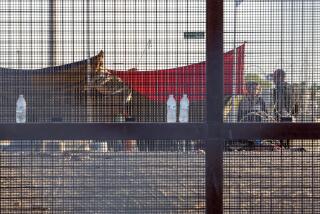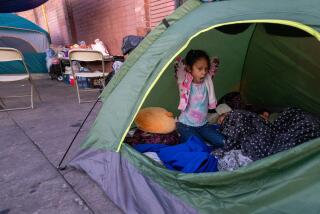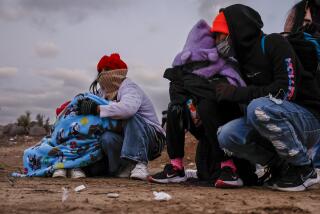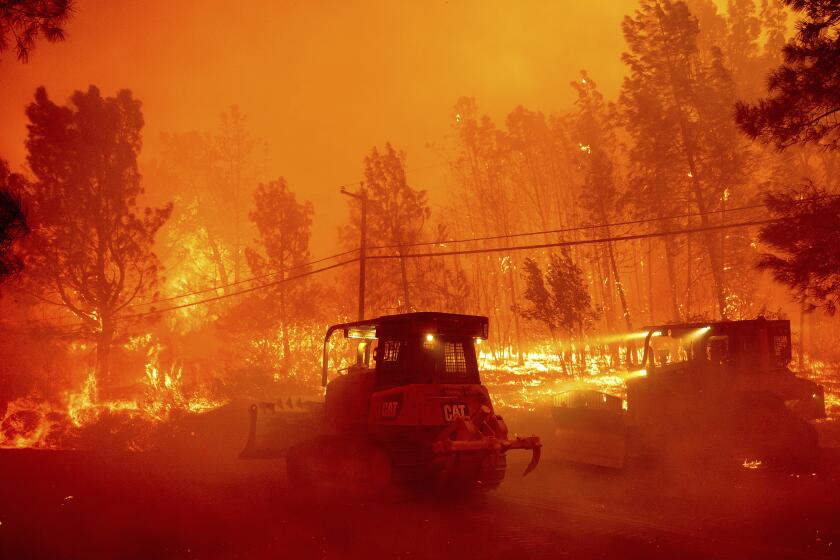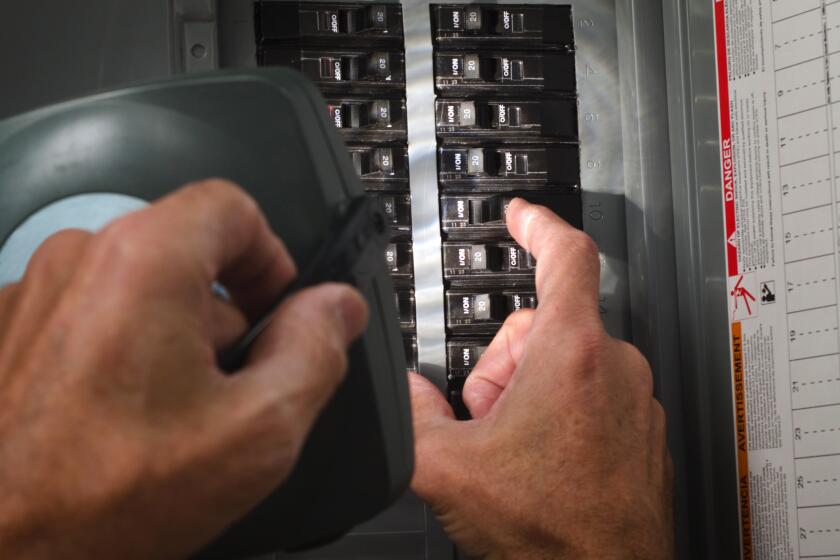Lawmakers, community leaders tour base, rally for detained minors
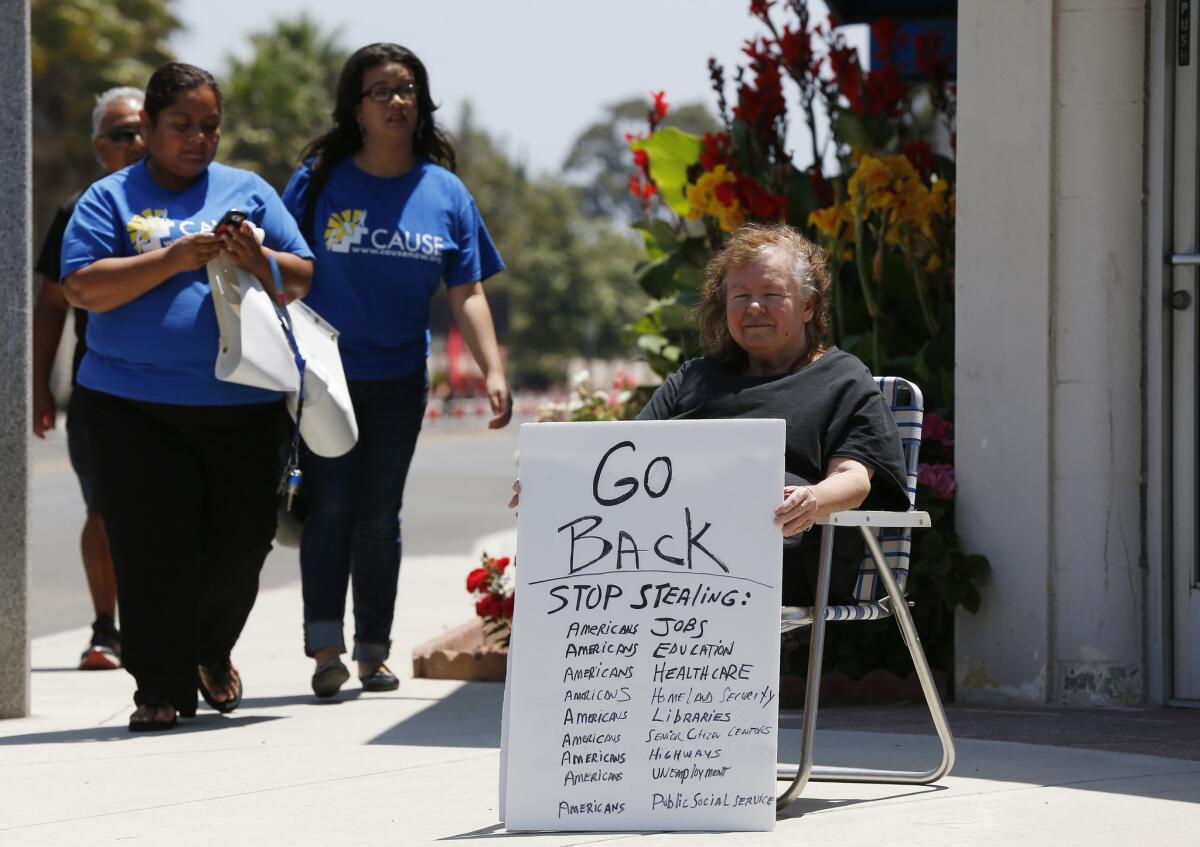
After a week of anti-illegal immigrant protests dominated California’s immigration debate, nearly 100 supporters of detained immigrants gathered Tuesday outside a Ventura County naval base where hundreds of unaccompanied minors are being held.
Two groups -- one that included clergy and religious leaders, the other members of the California Latino Legislative Caucus -- toured the facility. They said the 575 children between the ages of 13 and 17 being held at Naval Base Ventura County were well-treated and in good spirits despite being eager to be reunited with family.
“Collectively, we came to the conclusion that we are quite satisfied with the conditions,” said state Sen. Kevin de León (D-Los Angeles) in a conference call with reporters.
Unlike heated protests last week in Murrieta, the event drew only a handful of immigration opponents, one of whom sat outside the base with a sign reading “Go back.”
The detainees are part of a wave of Central American immigrants who have overwhelmed Border Patrol facilities in southern Texas after crossing the border illegally. They have been relocated to the Ventura base, as well as bases in Texas and Oklahoma, for processing before being released to family members prior to immigration court proceedings.
In an afternoon rally, clergy members described what they saw inside the facility. Visitors were not allowed to speak with the children, they said, but were able to get a sense of their daily routine and activities, as well as their emotional well-being.
“We saw their faces, we heard them greet us with buenos dias and good morning,” said Bishop Minerva Carcaño of the United Methodist Church, who led the religious delegation to the base. “The smiles were incredible.”
With the Ventura facility filled to capacity, an estimated 85% of the children currently housed there will be released in the next two weeks to family members, officials told Carcaño, with the remainder being sent to long-term shelters or other facilities. A new group of unaccompanied minors will take their place.
Some 700 children have already been processed and united with relatives, according to members of the legislative group.
Children participate in a structured daily routine, both groups said, taking classes in English as a second language and other basic subjects, playing sports, and attending a series of interfaith religious services. Most of the children are religious: Carcaño recounted how all but one child stopped watching World Cup matches on television to attend religious services.
“Under the circumstances, they look like normal children,” said Bishop Juan Carlos Mendez, who heads a Baptist church in Los Angeles County. “They were playing, they were drawing, they were teasing each other.”
Legislators echoed the description, saying that the base had been converted to house the children and was adequate for their needs. Detained children sleep in twin bunk beds, take classes in temporary classrooms, and use outdoor restroom facilities for showering and bathing, they said.
Local volunteers like Jessica Flanagan have been overwhelmed by donations from the local community.
“I’m quite proud of Ventura County’s caring and generous response,” said Flanagan, who helped start a Facebook group soliciting donations and support for the children at the base. In addition to donations of supplies, doctors, educators, and lawyers have reached out seeking to volunteer, she said.
While largely positive about the current conditions at the Ventura base, both groups expressed concern over the plight of children once released into the care of family members. Several noted that once federal officials place a child with a family member, it becomes the family’s responsibility to pay for any legal assistance for the children during immigration proceedings.
Many have legitimate cause for seeking asylum, said state Sen. Norma Torres (D-Chino), who toured the facility with her fellow legislators.
“It’s important for the U.S. to realize that this is a humanitarian crisis that is impacting very young children who have come here because they have seen that there is absolutely no future in their homeland,” said Torres, who hails from Guatemala. “Many of these children have come seeking refuge with family here because their parents have been murdered in their homeland.”
Without adequate legal representation, advocates say, even those cases may not be enough to ensure legal refugee status.
“We want to make sure these kids are guaranteed their rights,” said Vanessa Frank, an immigration attorney and chairwoman of Clergy and Laity United for Economic Justice, one of the nonprofit groups actively assisting the detained children in Ventura County.
“I think it really is time for them to find counsel for these kids during removal proceedings, just the way we have it during criminal proceedings,” she said.
matt.hansen2@latimes.comTwitter: @mtthnsn
More to Read
Sign up for Essential California
The most important California stories and recommendations in your inbox every morning.
You may occasionally receive promotional content from the Los Angeles Times.
